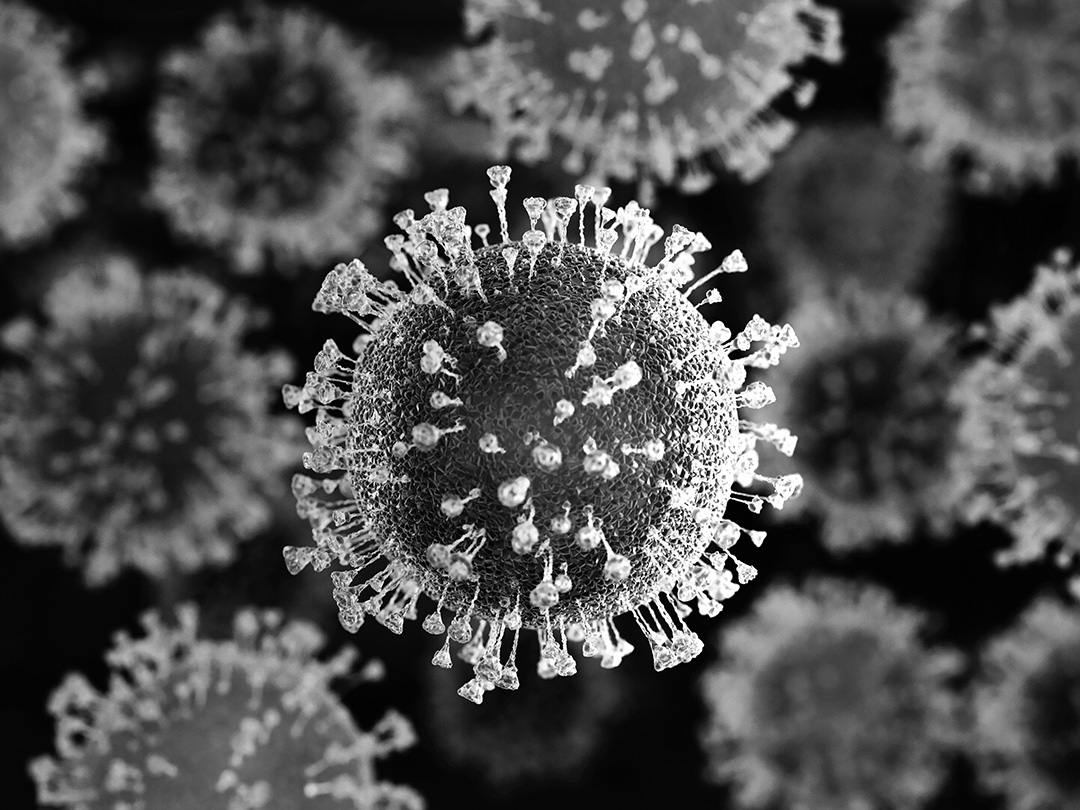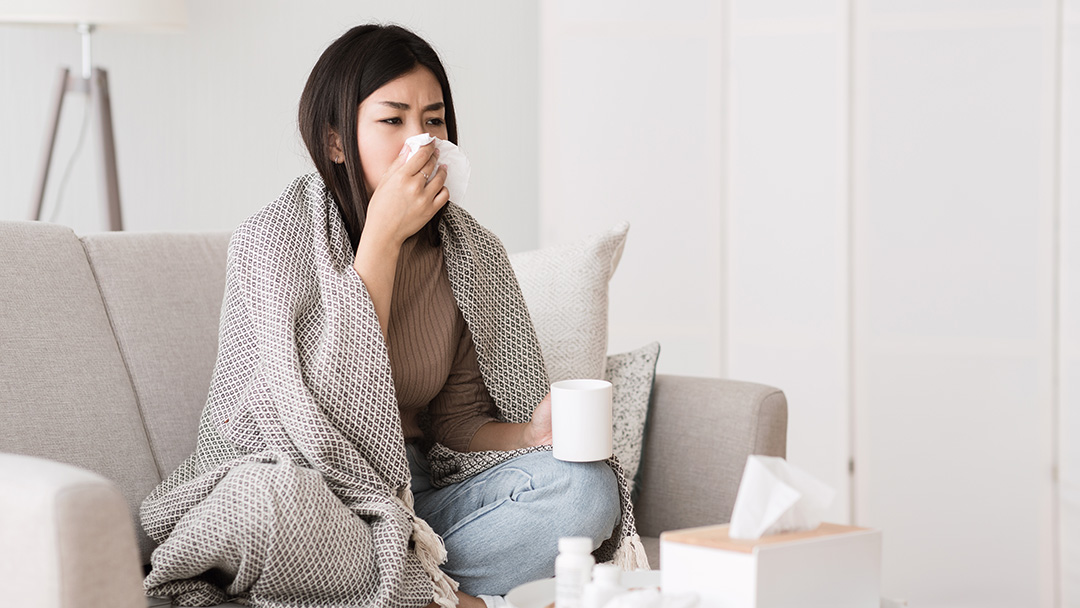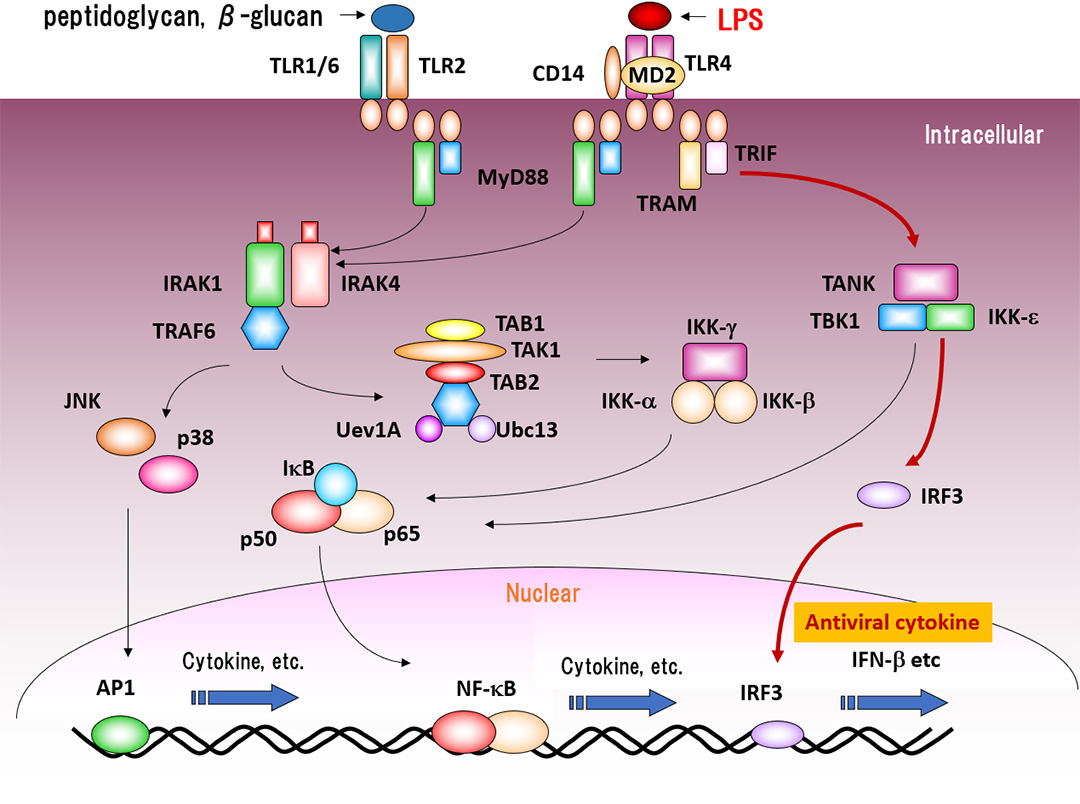




In December 2019, a new human coronavirus, SARS-CoV-2, was identified that had its origins in Wuhan, China. Coronaviruses typically infect bats and camels, but ongoing genetic diversification and changes in the local environment permit transmission to humans (*1). The Severe Acute Respiratory Syndrome Coronavirus (SARS-CoV) that emerged in 2002-2003 and the Middle East Respiratory Syndrome (MERS) virus from 2012 are both coronaviruses.

Although the new coronavirus infection (COVID-19) does not appear to be as severe as SARS, COVID-19 in elderly people and those with other serious diseases tends to be more severe and many individuals have already succumbed to this infection. There are currently no preventive vaccines or any drugs that can effectively control SAR-CoV-2. While supportive treatment to suppress fever and related symptoms has been recommended, the virus will only be controlled at this point in time by a healthy immune system.

When the new virus emerges, herd immunity is limited, as there are typically few to no individuals in the population at large who have humoral immunity (antibodies) capable of counteracting the pathogen. Furthermore, there are typically no vaccines available when a new virus pathogen emerges; vaccine development, including testing for safety and efficacy, takes a significant amount of time. Likewise, generation of endogenous antibodies, a major feature of acquired immunity, can take up to seven days or longer after pathogen exposure. By contrast, elements of the innate immune system are capable of detecting and neutralizing foreign substances immediately and prior to the development of an antibody response. We believe that people with active innate immunity recover quickly even if they are infected with the new virus.

Substances that activate innate immunity include peptidoglycans from lactic acid bacteria, β-glucans derived from mushrooms and yeast, and lipopolysaccharides (LPSs) from Gram-negative bacteria. These substances can activate macrophages, which are cells that are critical for promoting innate immune responses via their interactions with pattern recognition receptors (*2). Among their activities, macrophages can ingest and destroy infected cells. LPSs are notably effective at activating signals that induce antiviral responses, including the production of interferon β. Although LPS causes endotoxin shock when it enters the body through bacterial infection or leaky gut, it is not dangerous when taken orally or dermally, rather it regulates immunity (see the page “Basic knowledge of lipopolysaccharide (2) the safety of LPS, Immuno Vitamin”). Therefore, regular consumption of foods high in LPS may help to amplify innate immunity and protect against coronavirus infection.
(*1) New Coronavirus Infectious Disease, Infection Prevention Handbook for Citizens (Supervised by Makuo Kaku (Tohoku Medical and Pharmaceutical University School of Medicine, Department of Infectious Diseases), Published: February 25, 2020
(*2)TLR signaling pathways, Seminars in Immunology, 16: 3-9 (2006)

DynaxT bldg. 2F, 2217-6
Hayashi-cho, Takamatsu-shi,
Kagawa-ken,
761-0301 Japan
TEL : +81-87-867-7712
FAX : +81-87-867-7737
Your personal information on this site is protected by SSL.